TERRITORIES
Greater Region Summit
March 2019At the 16th Greater Region Summit on 30 January 2019, the Greater Region Executives argued for "ambitious territorial cooperation and a Europe that listens to its citizens".
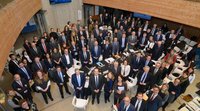
At the 16th Greater Region Summit on 30 January 2019, the Greater Region Executives argued for "ambitious territorial cooperation and a Europe that listens to its citizens".
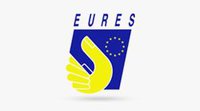
On 7 December 2018 in Metz, the EURES Resource and Documentation Centre/Grand Est Cross-Border Workers hosted the annual seminar of EURES advisers in the Greater Region.
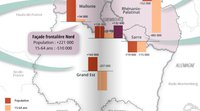
This new issue of "InfObservatoire" sets out the cross-border forecasts of the North Lorraine Urban Planning Agency (AGAPE): "With 150,000 French cross-border workers in Luxembourg in 15 years and huge movement of goods, isn't it time […] to make the cross-border dimension a priority issue?"
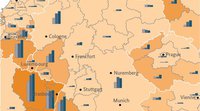
The observation of cross-border territories, which is now recognised as a priority by European countries, is moving towards overall coordination. The MORO project launched in Germany has accelerated this progress.
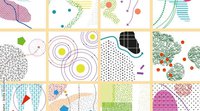
The MOT contributed to this publication* produced by the Institut Destrée et Acadie, following a series of Franco-Walloon cross-border seminars entitled "Territoires en trans– : mythologies, réalités et dispositifs" ("Trans- territories: mythologies, realities and mechanisms"). This document (available in French only) provides an in-depth analysis of cooperation between France and Wallonia.
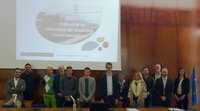
The MMUST project (Multimodal model and scenarios for cross-border mobility) has just been approved by the Greater Region Interreg VA programme. It is an ambitious project that aims to simulate cross-border movements between France, Luxembourg, Germany and Belgium.
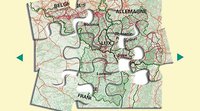
"Beyond the speeches and symbols, what meaning can the concept of a cross-border region have? By defining the region as an identity-based, territorial and institutional construction that endures over time, this work identifies and interrogates the specificities of this process in the cross-border setting. The issues are explored using the emblematic example of the Greater Region, which launched a long-term strategy in 2008 involving Lorraine, Luxembourg, Rhineland-Palatinate, Saarland and Wallonia."
As part of the "UniGR - Centre for Border Studies" project, the six member universities (Kaiserslautern, Liège, Lorraine, Luxembourg, Saarland and Trier) of the University of the Greater Region (UniGR) are going to set up a "European centre of skills and resources in border studies" with international visibility.
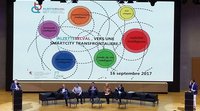
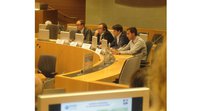
In association with the Grand Est regional council, the AFIGEO (French Association for Geographic Information) and the CNIG (French National Council for Geographic Information) took the INSPIRE European Conference of 4 and 5 September as an opportunity to bring together French-speaking players of the profession in the context of a “Francophone conference on geographic information”.
Good quality healthcare for the populations of the French-Luxembourgish border regions, made more accessible, more rapid and closer to home - this is the objective of the framework agreement on health cooperation ratified by Luxembourg and France.
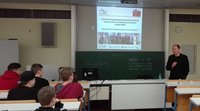
This is the aim of the project FagA/Centre d’aide à la mobilité transfrontalière (CAMT – Centre for Assistance with Cross-Border Mobility) launched on 1 July 2016 in the SaarMoselle Eurodistrict.
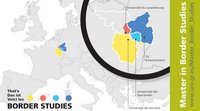
The "Master's in border studies" is an international, interdisciplinary and multilingual study programme aimed at providing students who wish to pursue their careers in intercultural and cross-border settings with the main concepts and necessary analytical tools to understand the issues related to border territories and transnational cooperation.
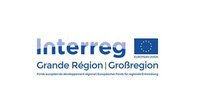
On 25 April 2017 in Forbach, an event to launch the European project “Mobipro.GR“ took place.
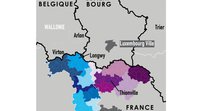
This report, submitted by the General Commission for Territorial Equality (CGET) to the Prime Minister, recommends the creation of a pôle métropolitain encompassing more than 300,000 inhabitants on the border with Belgium and Luxembourg. This would enable North Lorraine to take advantage of its geographical position and of the great attractiveness of its immediate neighbours.
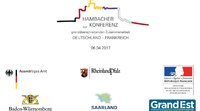
On 5-6 April 2017 in Neustadt-an-der Weinstraße (Rhineland-Palatinate), the third Franco-German cross-border conference was held, in the presence of Harlem Désir, the Secretary of State for European Affairs (FR), and Michael Roth, Minister of State for Europe (DE).

Kussbus is a Luxembourg start-up which has just launched an innovative home-work shuttle service in the Luxembourg-France-Belgium-Germany border territory.
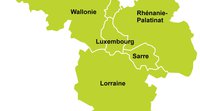
At the request of Luxembourg's Ministry for Sustainable Development and Infrastructures, acting on behalf of the different bodies of the Greater Region's Summit, a consortium led by the North Lorraine urban planning agency (AGAPE) in collaboration with the MOT, the urban planning agencies of Metz (AGURAM) and Nancy (ADUAN), and the Technical University of Kaiserslautern, carried out an assignment to assist with the drawing-up of the Greater Region's territorial development plan.
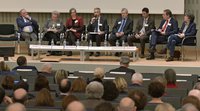
Close to 300 people gathered in Strasbourg for a major seminar on the cross-border relations of the new “Grand Est” region of France.
Several spatial planning pilot projects (MORO), such as the one that led to the setting-up of the IMeG,* incorporating border region and cross-border considerations have been launched in Germany.

Published by Correspondances Lorraines. Author: Pascale Braun. October 2016. Retail price: €20. Title in English: "The Greater East Region: Europe among Neighbours"
The second edition of “Startup Show 42”, a cross-border digital innovation fair, was held on 6 April in Metz on the fringes of the Franco-German Council of Ministers. Over forty startups from the Lorraine Corridor (Epinal, Nancy, Metz, Thionville) and the QuattroPole city network (Luxembourg, Metz, Saarbrücken, Trier) were there to present their know-how and latest innovations.
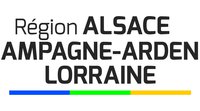
The President of the Alsace-Champagne-Ardenne-Lorraine Region, Philippe Richert, and his first Vice-President, Patrick Weiten, have written to the French President of the Republic. They are asking for 'a strong signal' to be sent at the French-German council of ministers meeting on 7 April in Metz.
The first-ever cross-border regional development strategy since the launch of the European programme LEADER is being put in place along the Moselle River where it divides Germany and Luxembourg.

The "Grex" platform was set up on 4 January 2016 in order to provide operational support to any sole trader or SME wishing to develop an economic partnership in the Greater Region.